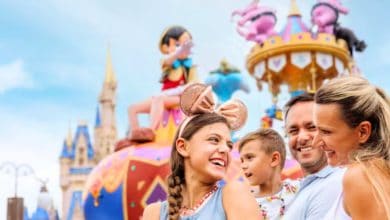Trump’s Disney: Studio Joins Companies Retreating on Diversity and Inclusion
For years now, The Walt Disney Company has led corporate diversity and inclusion efforts, shaping its workforce and entertainment to reflect a more inclusive society. From promoting underrepresented voices to on-screen representation, Disney has emphasized belonging and equity. However, recent developments indicate a shift, with the company quietly scaling back some diversity policies amid a turbulent political climate.

The reelection of President Donald Trump has brought sweeping policy changes, including the elimination of diversity, equity, inclusion, and accessibility (DEIA) programs across the federal government.
Among the most controversial moves are the federal government’s redefinition of gender to only two categories and the ban on transgender athletes in women’s sports. While these policies primarily affect government agencies, corporate America is also feeling the pressure, leading to hushed reassessments of existing diversity initiatives.

According to an NPR analysis, Disney is one of several major corporations that have started subtly rolling back certain DEI commitments. The company’s most recent annual report, filed in November—just as Trump defeated Joe Biden in the election—featured a significantly shortened diversity, equity, and inclusion section.
Notably, references to a website dedicated to amplifying underrepresented voices and detailing Disney’s DEI commitments were removed. A spokesperson for Disney declined to comment when approached by NPR.
Historically, Disney has championed inclusion through its workforce policies and storytelling. The company has implemented programs such as the Black Talent Network, Women’s Talent Network for Asian American Pacific Islanders, and the Women’s Talent Network for Latina professionals to foster leadership opportunities for historically underrepresented groups.

In entertainment, Disney has made small strides with LGBTQ+ representation, including openly queer characters in films such as Strange World (2022) and Lightyear (2022). The Marvel Cinematic Universe has also introduced LGBTQ+ characters, such as Valkyrie in Thor: Love and Thunder (2022) and Billy Maximoff in the Disney+ series Agatha.
However, Disney has also faced scrutiny for decisions that appear to step back from this commitment. In December 2024, The Hollywood Reporter revealed that a transgender character storyline had been removed from the animated series Win or Lose, with Disney explaining that topics related to gender identity should be discussed by parents on their own terms.

Additionally, reports surfaced that a line from The Marvels (2023) hinting at a past relationship between Valkyrie and Carol Danvers/Captain Marvel (Brie Larson) had been cut from the final version of the film.
This shift aligns with a broader corporate trend in response to political and economic pressures. Other major corporations, including Google, GM, Pepsi, and Comcast, have also re-evaluated their DEI programs in recent months. Columbia University professor Shiva Rajgopal told NPR that companies will likely introduce these changes quietly, stating, “It makes very little sense to issue a press release saying, ‘I’m going to stop’—because that’s like waving a red flag to a bull. Whenever practices change, the folks who drop them silently are usually in the majority.”
Despite these adjustments, Disney still publicly maintains a commitment to inclusion – at least for now. The company’s website emphasizes its dedication to fostering an inclusive culture and highlights its leadership in LGBTQ+ workplace equality. Statements promoting diverse hiring practices, employee resource groups, and inclusive storytelling remain prominent, though actions such as report edits and content modifications suggest a more cautious approach.

As corporate America navigates the evolving political landscape, the question remains whether companies like Disney will continue to embrace diversity and inclusion as core principles or gradually scale back in response to external pressures. For now, the company’s approach appears to be one of quiet recalibration, leaving the future of its DEI efforts uncertain.
How do you predict Disney’s attitude to diversity and inclusion will evolve in the coming years?






where do you get this information?